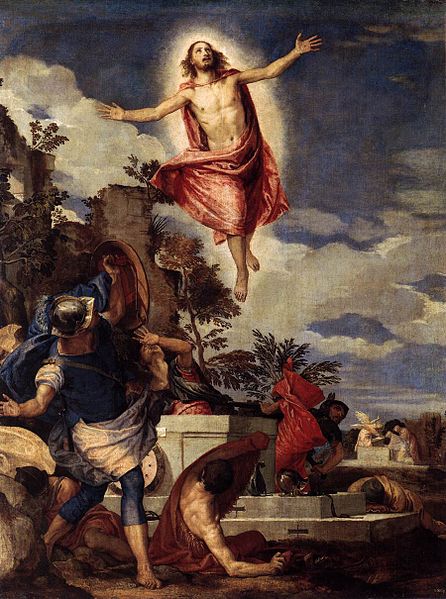There are a number of biblical events that stand out in the minds of people. Creation, the parting of the Red Sea, the instantaneous destruction of the walls of the city of Jericho, the virgin birth of Jesus, and the feeding of more than five thousand people with only two loaves and five fish are just a few of the many miraculous events described within the pages of the bible. Yet, there is one event that stands apart as being unique in the history of God and of his people. The resurrection of Jesus Christ from the dead never to die again is unlike any other event that has ever occurred in biblical history.
What makes the resurrection of Jesus so important and what are the implications of this event for all who trust in Christ for salvation?
A common theme within the gospel narratives about the life of Jesus is the challenge that the religious authorities had to his teachings and his pattern of life. Jesus was in a place of authority within the Jewish religious structure. As such, he was expected to act in a particular manner and to teach within a particular accepted structure. When Jesus acted in ways that were contrary to accepted patterns or when he taught in ways that were contrary to widely held thought patterns, the authorities demanded that Jesus explain by what authority he did these things. This society understood that actions were acceptable only when they were done according to the proper authority. Jesus’ response to such inquiries was to point these religious authorities to his coming resurrection from the dead. In one instance when they challenged Jesus for cleansing the temple early in his ministry, the resurrection was the miraculous sign he used as his authority.
“So the Jews said to him, ‘What sign do you show us for doing these things?’ Jesus answered them, ‘Destroy this temple, and in three days I will raise it up.’ The Jews then said, ‘It has taken forty-six years to build this temple, and will you raise it up in three days?’ But he was speaking about the temple of his body. When therefore he was raised from the dead, his disciples remembered that he had said this, and they believed the Scripture and the word that Jesus had spoken” (John 2:18-22).
 The religious leadership sought a sign from Jesus, but Jesus was all about doing only the Father’s will and so the only sign that he gave them of his authority was the resurrection. He spoke of the temple of his body, but the people that he was speaking to were so focused on the physical temple of which they had enormous pride that they completely missed his meaning. Jesus often spoke in a manner that those who had spiritual insight got his meaning and those who didn’t have such insight missed it completely. These words of Jesus took on even greater meaning following Jesus’ resurrection from the dead. His followers were able to think back to this time and faith was increased within their hearts. They understood that they could trust all of Jesus’ words because his declaration that he would raise from the dead on the third day actually occurred. The greatest enemy is death and if Jesus could be trusted in this area then he could be trusted in every area. The resurrection is the ultimate proof of Jesus’ entire ministry. The Apostle Paul understood this truth so clearly that he described it as the center point of the entire Christian faith.
The religious leadership sought a sign from Jesus, but Jesus was all about doing only the Father’s will and so the only sign that he gave them of his authority was the resurrection. He spoke of the temple of his body, but the people that he was speaking to were so focused on the physical temple of which they had enormous pride that they completely missed his meaning. Jesus often spoke in a manner that those who had spiritual insight got his meaning and those who didn’t have such insight missed it completely. These words of Jesus took on even greater meaning following Jesus’ resurrection from the dead. His followers were able to think back to this time and faith was increased within their hearts. They understood that they could trust all of Jesus’ words because his declaration that he would raise from the dead on the third day actually occurred. The greatest enemy is death and if Jesus could be trusted in this area then he could be trusted in every area. The resurrection is the ultimate proof of Jesus’ entire ministry. The Apostle Paul understood this truth so clearly that he described it as the center point of the entire Christian faith.
“And if Christ has not been raised, then our preaching is in vain and your faith is in vain. We are even found to be misrepresenting God, because we testified about God that he raised Christ, whom he did not raise if it is true that the dead are not raised. For if the dead are not raised, not even Christ has been raised. And if Christ has not been raised, your faith is futile and you are still in your sins. Then those also who have fallen asleep in Christ have perished. If in Christ we have hope in this life only, we are of all people most to be pitied” (1 Corinthians 15:14-19).
Jesus’ resurrection from the dead.
The faith of the Corinthian believers, like the faith of Jesus’ earliest followers, had its foundation in Jesus’ resurrection from the dead. The Apostle Paul preached the gospel to those in Corinth and an essential part of that gospel proclamation was the fact that Jesus rose from the dead just as he had said. Such preaching would be useless without the resurrection having actually occurred. The truth of the resurrection is central to affirming that God is true. Failure to believe in the resurrection is a failure to believe that God is trustworthy and such a person is unable to trust in Christ for salvation. The cornerstone of the Christian faith is the belief that Jesus gave his life on the cross as a sacrificial atonement for the sins of the world. The proof that he was who he said he was is that he was raised from the dead on the third day never to die again. Without the resurrection, sin would not be dealt with and all people would be lost in separation from God. God is perfectly holy and only those who have had their sins taken away have the promise of living in the presence of God. The hope of the resurrection not only affirms that those who trust in Christ have their sin dealt with but acts as a guarantee that all people of faith will live for eternity in the presence of God. The resurrection makes the Christian faith an eternal reality rather than merely a human construct that exists only within the lifetime of the hearer but dies with him or her.
“But in fact Christ has been raised from the dead, the first fruits of those who have fallen asleep” (1 Corinthians 15:20).
Paul went on to affirm the reality of the resurrection of Jesus from the dead. His resurrection is the guarantee that all who trust in him will follow in his footsteps. Firstfruits is the first and best part of a harvest and Jesus is described as the first and best of all who will be raised from the dead never to die again. Though physical death will still occur, those who trust in Christ for salvation have Jesus’ resurrection as the perfect example that guarantees eternal life. While physical death separates an individual from his or her physical body for a short time, the promise of the resurrection gives the believer confidence of eternal life.
The resurrection of Jesus from the dead is the fundamental belief of Christian.
There is no event that is more central to the proclamation of the gospel message. The Christian faith rests solely on the belief that Jesus did, in fact, rise from the dead never to die again. All that Jesus said and did is affirmed by his resurrection. The Christian believer has the confidence that though physical death may come, eternal life is guaranteed. The resurrection of Jesus stands alone as a historical event that demonstrates God’s faithfulness and power and ensures the believer that he or she has a life beyond death. The power displayed in the resurrection shows that God is able to do all that he has promised and gives the believer in Christ the confidence to live life fully on earth while looking forward to even greater things in eternity.






